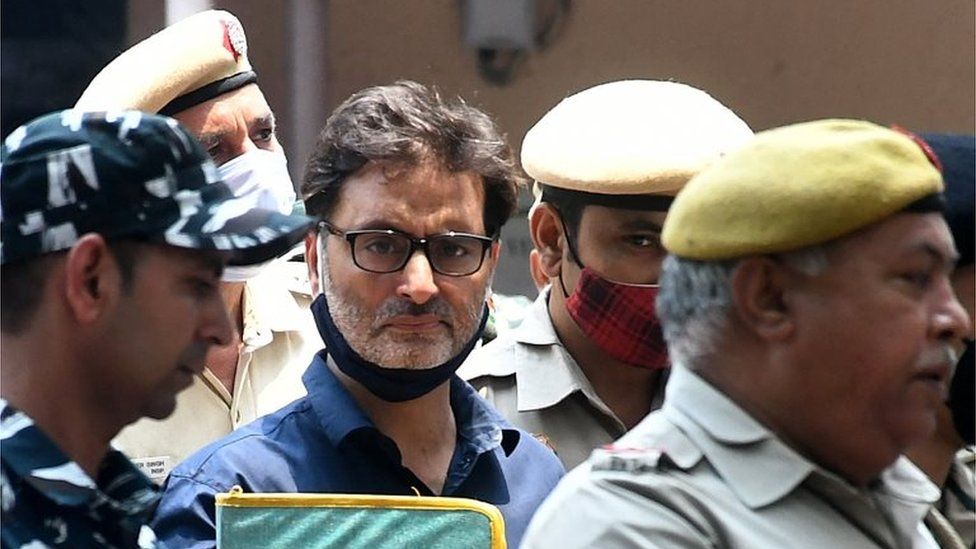Kashmiri ‘separatist’ Yasin Malik handed down life imprisonment in India

A court in India has sentenced senior Kashmiri ‘separatist’ leader Yasin Malik to life imprisonment after convicting him of funding terrorism, BBC reports.
He was found guilty of participating in and funding terrorist acts and involvement in criminal conspiracy.
Malik told the court he gave up arms in the 1990s. He was convicted last week.
Tens of thousands of people have been killed in Muslim-majority Kashmir since an armed revolt against rule by India, which is mostly Hindu, erupted in 1989.
The court in the capital Delhi gave Malik, 56, two life sentences and five 10-year jail terms, all to be served concurrently, NDTV reported.
“Verdict in minutes by Indian kangaroo courts,” Malik’s wife Mushaal Hussein wrote on Twitter, saying he would never surrender.
Shops in some areas of Srinagar, the main city in Indian-administered Kashmir, were shut and police fired tear gas to disperse stone-throwing protesters outside Malik’s residence. Mobile internet has been suspended in the region as a security precaution.
Prime Minister Shahbaz Sharif of Pakistan, which disputes India’s claim to Kashmir, called it “a black day for Indian democracy”.
“India can imprison Yasin Malik physically but it can never imprison [the] idea of freedom he symbolises,” he tweeted.
India’s National Investigating Agency (NIA), which deals with anti-terror crimes, had demanded the death penalty for Malik, the leader of the pro-independence Jammu and Kashmiri Liberation Front (JKLF). The defence had asked for life imprisonment.
Ahead of sentencing, he was escorted into the court surrounded by security forces.
Malik was arrested shortly after the JKLF was banned in 2019.
He did not contest the charges brought against him under the stringent Unlawful Activities Prevention Act (UAPA), as well as sedition and criminal conspiracy charges.
But a statement released by the JKLF after he was convicted last week called the charges “fabricated and politically motivated”.
“If seeking azadi [freedom] is a crime, then I am ready to accept this crime and its consequences,” it quoted Malik telling the judge.
He also told the court that after giving up weapons in 1994, he had “followed the principles of Mahatma Gandhi. Since then, I have been following non-violent politics in Kashmir.”
He challenged the Indian intelligence agencies to prove that he had been involved in any terror activity since then. The acts for which he was convicted took place in 2010 and 2016, prosecutors alleged.





